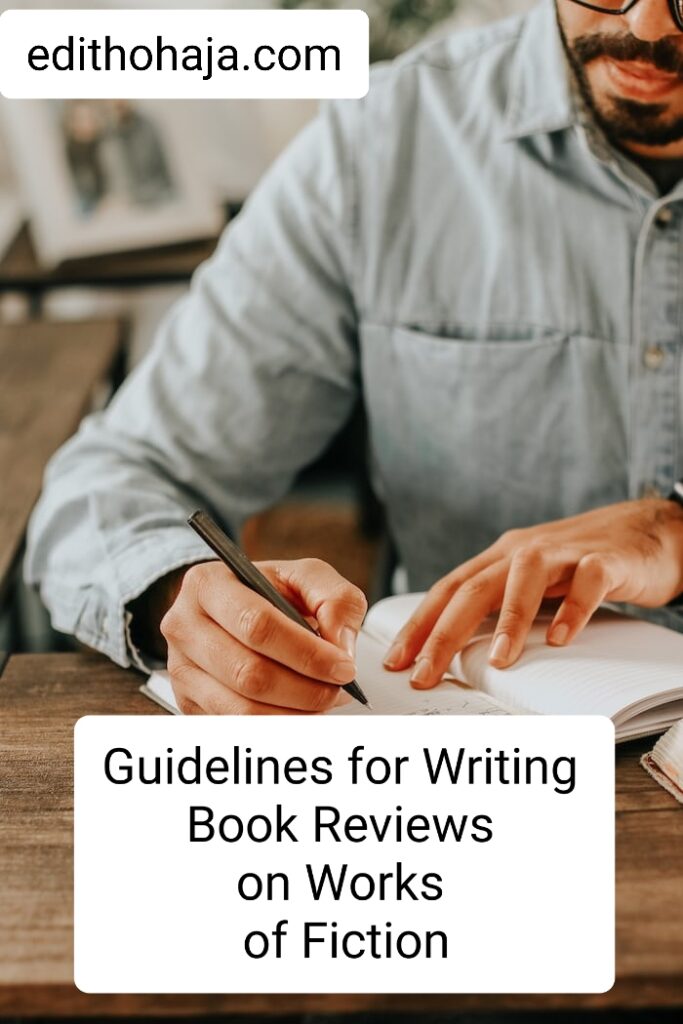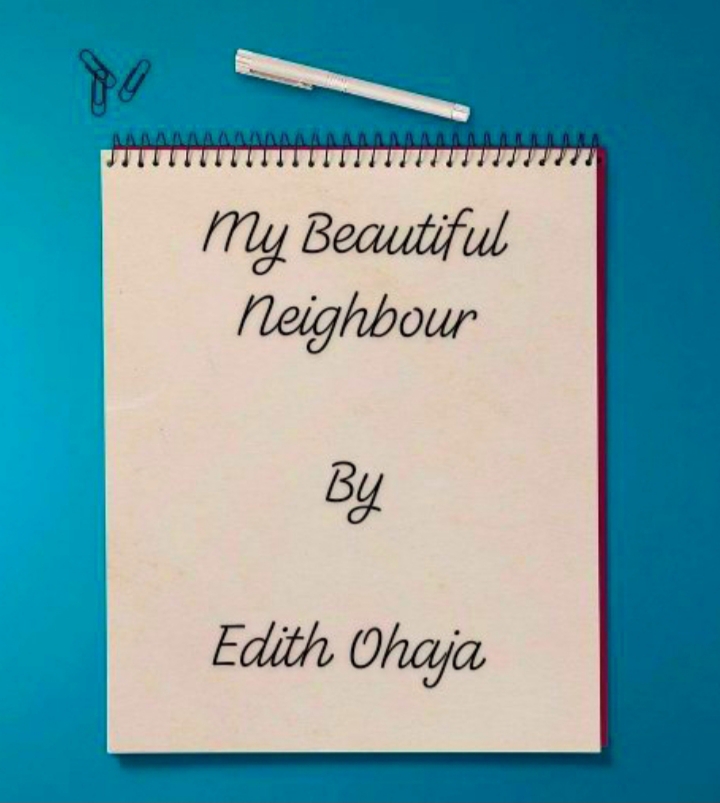GUIDELINES FOR WRITING BOOK REVIEWS ON WORKS OF FICTION
Introduction:
The first part of this series discussed the meaning of fiction and the elements that constitute it. The second part explained how valuable fiction is and how to write effective fiction. This third part delves into how to write book reviews on works of fiction, like novels and short stories. This post provides specific guidelines for doing so.
What Is A Review?
A review is an evaluation of an artistic work. It not only gives insight into the content and form of the work, it passes judgment on it. A favourable review would, therefore, recommend the work to the public while an unfavourable review would be less approbatory. In my book, Magazine Article Writing, the rating of works of art by reviewers, their commendations and rebukes of the creators are depicted as means of encouraging “creative people to strive for the highest standards in their works.”
A review is usually about 600 words but some reviews go up to 1,000 words.
It goes without saying that one should only write reviews on books they have thoughtfully read. It is unethical to offer a critical assessment of a book one has not read or a book that one has just scanned. Thoughtful reading means reading with careful attention. Taking notes in the process furnishes one with the information required to substantiate the points made in the review.

One can read reviews by others on the same book before writing his but there’s the danger of plagiarising or copying their opinions or being influenced by them knowingly or unknowingly.
According to writer and editor, Joe Walters, in his article on how to write a great review, “Reviewing is an art form.” That means it requires skill and knowledge like the art forms the reviewer assesses. Thankfully, Parts 1 and 2 of this series have equipped the reader with valuable knowledge on fictional writing that can be applied in a review of a book of fiction.
Below are the points the reviewer may wish to address in his assessment of such a book. Note that every review may not cover all these areas, particularly the short ones.
Guidelines for Writing Book Reviews on Fictional Works
• List the publication details – book title, author, publisher, date of publication, publisher’s price and number of pages on the top left corner of your review. This is the standard way of starting a book review but the writer can instead work some of these details that he considers necessary into the body of the review.
• Add a special title to your review if you wish to. The title should capture the essence of your assessment. On the other hand, ‘Book Review’ before the publication details can serve as the title.
• Give a synopsis of the book without revealing the ending. This should typically not exceed a few sentences. An anthology of short stories would require a summary of some of the more brilliant titles in the collection.
The ending is usually omitted to maintain the mystery and heighten the enjoyment of readers.

• Evaluate the book based on some of its elements like the following points which can be addressed in any order the reviewer sees fit:
***Genre of story – e.g. romance, suspense/mystery, fantasy/paranormal
***Originality of the work: Is the work fresh or is it too reminiscent of a particular work or works?
***Is the work true to life and hence believable or does it seem far-fetched? (The exceptions to this rule were highlighted in Part 2 of this series under the subheading, “Achieving verisimilitude.”
***Is the plot logical in its sequence and without fuzzy details?
***Is the description vivid enough to aid visualisation?
***Are the main character/s well developed or sketchy and contradictory?
***Is the dialogue/conversation and setting fitting to the characters and events in the story?
***Is the point of view used appropriate and consistent?
***Is the theme socially relevant and the story morally uplifting?
***Point out specific things you admire and dislike about the book.

Besides the foregoing, there are other technical details to evaluate in the book like the following:
• Cover design
• Quality of paper
• Fonts used and type setting
• Quality of illustrations, if any
• Quality of binding
• Quality of language – grammar, spelling, word usage, etc.
In all these, illustrate your points by citing passages from the work where necessary.
• Compare the book to previous works by the author or similar works by other authors.
• Conclude your review by giving your general impression of the work and stating if you think it is of high, mediocre or poor quality. Rank the work if you wish or it is required by the medium you’re writing for. You can do this over five or over ten as that medium stipulates. E.g. 6/10 or 3 out of 5 stars.
Conclusion:
This is the end of our three part series on fictional writing and reviewing. I hope you found it helpful.
For examples of reviews of fictional writing, see Jennifer Reese’s review of Chimamanda Adichie’s novel, Americanah, and Deepanshi Chopra’s concise assessment of Sidney Sheldon’s novel, Bloodline.
I look forward to your comments and questions on this segment and the entire series. God bless you!
References
Book Reviews. The Writing Center, University of North Carolina.
Chopra, D. (2021, Sept. 18). Book Review – Bloodline by Sidney Sheldon.
National Open University of Nigeria (NOUN) Courseware pdf on Critical Writing and Reviewing
Ohaja, E. U. (2004). Magazine Article Writing. Lagos, Nigeria: John Letterman, p. 102.
Reese, J. (2013, May 22). A Different Kind of Immigrant Experience in ‘Americanah’. NPR.
Walters, J. (2023). How to Write a Great Book Review.
You may also like the following related posts:


Very helpful and insightful!
Many thanks ma!🙌🏽
I appreciate.
Thank you so much for this. I really appreciate this guide. I never knew one had to leave out some parts for the benefit of suspense. I usually just summarize the entire thing without even leaving a spoiler alert.
Well, I’ve learnt my mistake.
I also appreciate your advice about giving an unfavorable review. At times, I dwell too much on the book’s flaws and I forget the other qualities of the book that ought to be appreciated.
God bless you, Aunty Edith 🙏
God bless you too! 🙏
Ma, I find it difficult to criticise a work of art because of the fear of hurting the author. Like i have commented on time, my teacher once told me that critiques hardly create. This has also contributed to my reluctant behavior when it comes to reviewing a work or art. What do you suggest i do?
I enjoyed this series, honestly speaking. It exposed me to many things i did know about writing, especially writing fiction. Thank you ma. I look forward to more of these educating contents.
One thing I advise is for you to read vastly if you want to embark on any firm of writing. As you read, your confidence to write will grow because you know you have a lot to offer. As to hurting the author, I have explained how to be considerate. Cheers!
Thank you ma this indeed was very helpful and detailed
One part that caught my attention was the part where you wrote ” it goes without saying that one should only write reviews on books they have thoughtfully read”. This is true because you can only judge what you know.
Yeah!
Thank you ma for giving me a clearer understanding on review writing.Your wisdom is much appreciated, and I have gained valuable insights from this.
I look forward to implementing what I have learnt.
I learnt the basic ingredients in reviewing a fictional work and most importantly to avoid reviewing a book I have not read. This is explicit!
In all you said, ma, the one I find intriguing is that of reviewing a book without reading it properly and not only reading but understanding it.
Thank you, ma, for this wonderful article and I will take correction from now on☺️
Thank you Ma, I make some of these mistakes in my work too. Thank you Ma for this wonderful piece.
You’re welcome. Cheers!
Thank you for making me to understand this, when I was in first year they taught us about the topic Book Review in GSP 102 but I didn’t understand it too well if not now
I really appreciate ma
Thank you ma’am for giving me a clearer understanding on book review.i will encourage others to visit here because we have a lot to learn from this blog.
Thank you so much ma for this amazing piece,there are so many things one can get from a simple piece. Also the act of reviewing based on another’s review can be so tricky and without knowing plagiarism occurs,so i feel for me its better like advised to read the work throughly to avoid been told that you copied when it wasnt intended. Also learning that one is meant to not add the ending,ive not been doing a good review work then. Thank u so much ma for this piece.
Happy to.be of service. Praise God!
Helpful piece ma, I just realized that, one can actually criticize a book and not just reviewing it straight up.
But I have a question ma, dose it mean that reviewing a book is more like stating what you observed on the work? because initially, I thought it was just to summarize the book.
This question is answered in the post. You thought wrong.
This is so insightful. Do you have any of your work already reviewed?
The question is unclear. Reviews of my books? Or reviews that I wrote?
This post has helped me as a student of mass communication in my book review writing. I can remember my first book review and how poorly done it was, but this particular post has given me an insight on what to do and how to go about it in my next book review.
This piece of work is an eye opener and it is of great help to the students especially me. The interesting part is that suspense is part of review. Like you said earlier, review passes judgement on a book which can either be favourable or not. Thank you and God bless you ma.
One should not give a critical assessment of a book without reading it or by just scanning through it. Read the book with careful attention before giving your review.
The guidelines are helpful. Thank you, ma.
Information you don’t come across every where
Thanks for the simple and straight explanation
Thank you so much ma. I didn’t know that the publication details are usually at the top left corner of our review. I haven’t learnt much from our departmental lecturers but this post have given me some insights about book reviews.
if not that I have already applied for unn,I would have applied your name as a school. ma this piece of work has really helped me in teaching the year one student in my room,thank you so much for this I tap from your wisdom.she applaud for you ma because this work helped her in her assignment.
Thank you very much ma for sharing, this is really helpful. Before now I don’t know how to write a review but with this, I believe I can attempt book review.
Intentionally reading a work will help one critically review it. It’s wrong to judge a work you know little or nothing about. This is really helpful,thank you ma’am.
Thanks for this Ma. One thing I have learnt from this is that reviewing a work of art especially books is not something that should be done anyhow. It requires the reviewer to follow due process.
I appreciate your guidance, which has provided me with a better grasp of review writing. Your wisdom is highly valued, and I’ve acquired valuable knowledge from this. I’m eager to put into practice what I’ve gained
This write-up offers insightful examples of book reviews, helping readers improve their reviewing skills. It demonstrates the importance of clear and concise critiques. I’d rate it 8/10 for its usefulness and clarity.thank you ma
Really! Your comment sounds like it’s bot-generated, no offence meant.
Thank you ma for this piece. I’ve learnt alot from it. I never knew a review should be about 600 words or more. I always thought it could be very short or long.
You can do a capsule review ad seen kn the material.I gave your class.
This definitely gives me a clearer understanding of writing a review in contrast to what I had of it. Thank you ma’am!
I thought that review and summary were the same thing but I know now the difference that, Review can also mean a revision or subsequent reading of a text or narrative. Whereas, Summary is a broad term which refers to the short restatement.
And the guidelines in reviewing a story. God bless you 🙏
This has helped me realize my mistakes. I usually summarize the entire book and move on without making all the necessary evaluation. I’ve also found out that people’s view must differ from mine. I once criticized a book and my friend wanted to have my head.
Thank you for this eye opener ma.
Wow, thank you ma!
With this, I clearly understand how to write a book review coupled with your explanations in class.
Thank you ma for this write up
Indeed book review has to do with more skills and knowledge. It needs critical thinking. Mama, you did a very great work.
It is completely unethical to give an assessment or a critique of a write up you just scanned through. Very helpful ma
I found this post to be very helpful and informative. Your guidelines are clear and easy to understand, and your examples and tips are very helpful. I would recommend this post to any student who is struggling with academic writing.
I am grateful for your guidance, which has enhanced my understanding of review writing. Your wisdom is greatly appreciated, and I have gained valuable knowledge from this experience. I am enthusiastic about applying what I have learned.
Thank you ma, this write-up has many things to learn from it, which i did..
How I wish I had this material early enough, thanks a lot MA for this I love how you use simple and clear words.l’ve read many academic materials but your materials are the only ones I enjoy reading most because of its relatable examples.
Thank you. Glory to God!
One part that caught my attention was the part where you wrote “it goes without saying that one should write reviews on books that they have read thoughtfully”
This is true because you can only judge what you know.
Ingeniously simplified for easy comprehension.
Thank you ma’am.
A nice piece indeed! This has really helped.